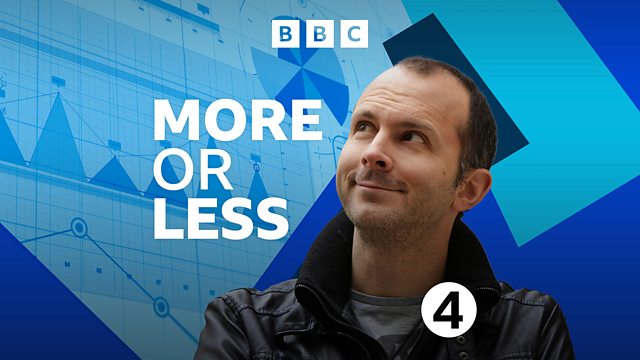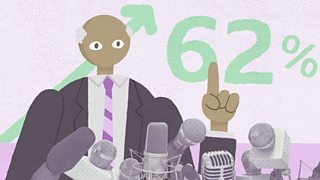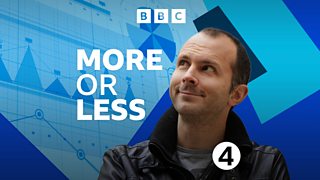
Do Doctors' Strikes Save Lives? - Epidemics - Nassim Nicholas Taleb - Eurovision Song Contest
Tim Harford investigates the connection between a doctors' strike and a drop in the death rate. Plus, how does the Eurovision Song Contest voting work?
Do Doctors' Strikes Save Lives?
Have you heard that, when doctors strike, the death rate goes down? More or Less investigated a doctors' strike in Israel, where it was reported that the death rate dropped by 39% over a three-month period.
We spoke to Judy Siegel-Itzkovich of the Jerusalem Post, who covered the strike, and tried to explain why the number of deaths dropped. Baroness Julia Neuberger suggested that non-essential surgery is postponed during any strike causing a short-term drop in death rates.
But Dr Richard Smith, the former editor of the British Medical Journal, believes we should not play down the risks of getting treatment and warns that visiting a hospital is more dangerous than bungee jumping!
Epidemics
Is the risk of epidemics after natural disasters being over-hyped? We spoke to Dr John Watson, a medical epidemiologist with the Disease Control in Humanitarian Emergencies Program at the World Health Organisation, who has researched what actually happens after natural disasters.
Totally Random
Nassim Nicholas Taleb is the best-selling author of books on the importance of randomness in our lives. He is a staunch critic of economics and wishes not even to breathe the same air as economists. Tim Harford took the risk and interviews him.
Eurovision Song Contest
Claims that Sir Cliff Richard was robbed of first place in the 1968 Eurovision Song Contest because of General Franco's scheming is just the latest story in a long history of grumbling about questionable voting practices. So much so that allegations of vote-rigging have become the subject of intensive academic inquiry.
Sociologists, engineers, mathematicians and even a molecular geneticist have all published papers on the issue. More or Less reporter Ruth Alexander spoke to Dr Derek Gatherer, a scientist who has built up a picture of complex voting blocks by generating thousands of random simulations of the contest results and comparing these to the real scoring in every contest since 1975.
And she interviewed Dr Michel Vellekoop, a mathematician from the Netherlands, who has explored possible innocent explanations for apparent vote-trading relationships by doing an extended statistical analysis of the voting behaviour of individual countries.
Last on
Broadcast
- Mon 19 May 2008 16:30大象传媒 Radio 4 FM
Just how reliable is our intuition? Find out with The Open University
OU Connect: Put your brain to the test with our new mind-bending probability problems!


